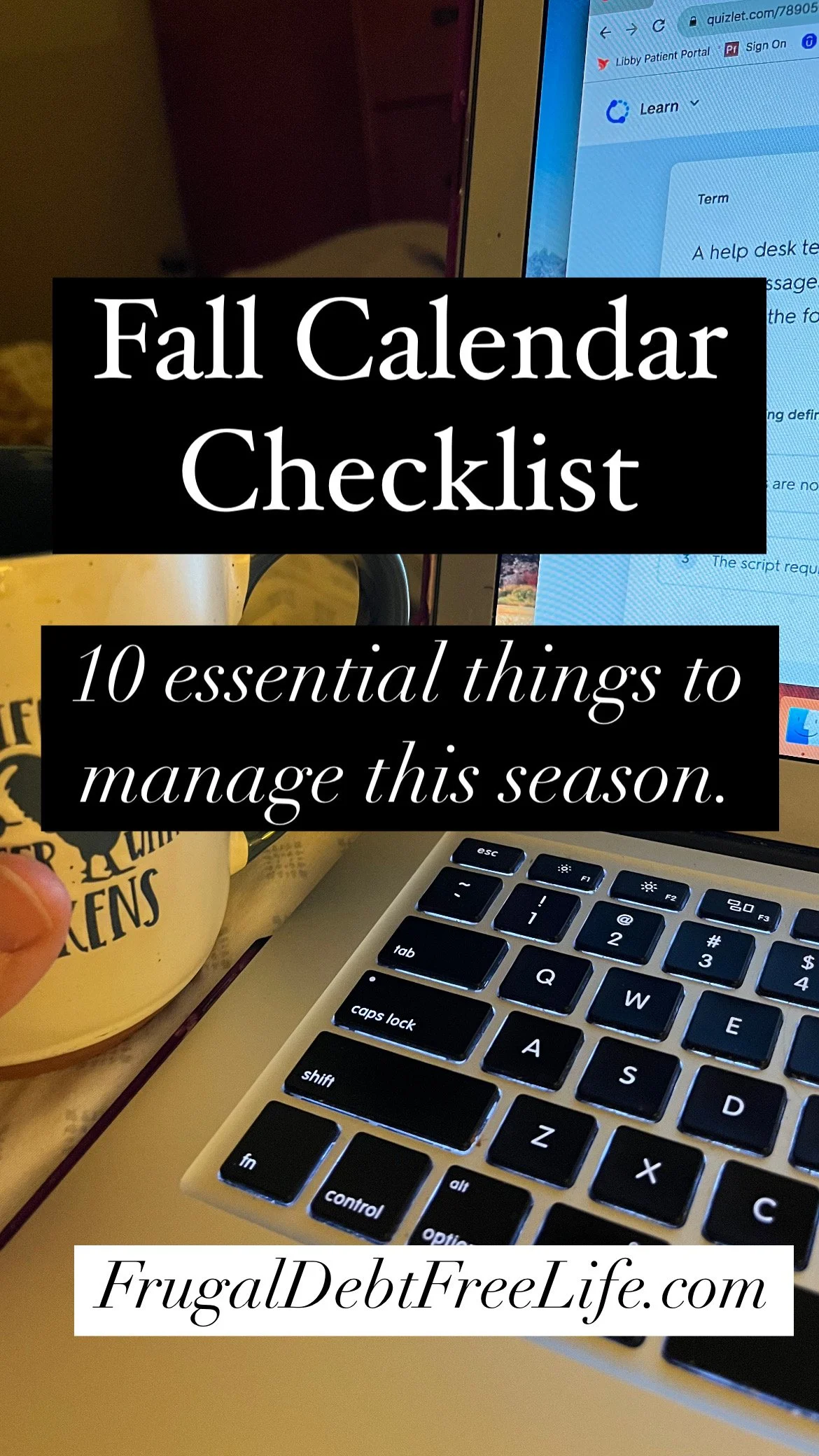Fighting back with collection agencies
/Two weeks ago I got a letter from a collection agency. It was for a debt I did not owe.
Here is the thing. My husband and I are debt free other than our mortgage. We spent countless hours combing our credit reports, paying off debts, following up on payments and receiving written notice of those debts. We kept copies of canceled check and bank statement and followed up on every letter or phone call.
We knew how shady collection agencies could be and were diligent. So when a letter stating that I had a debt I knew I didn't owe came in my mailbox I immediately followed up on it.
Today I wanted to give you a few pointers in how to handle a collection agency.
Before we venture any further, I do want to say that it is always important to pay your debts. If you borrowed money, pay it back. However, I also understand that life happens and everyone falls on hard times and unexpected things occur that might prevent you from paying your bills on time, or being able to pay them back in total. I am not here to judge you or shame you so please don't take anything I say as judgment. Remember, I am the one that had $36,000 in stupid debt at one time. Now, let's move on.
First, a little about how collection agency gets your info. Collection agencies buy up debts. For example, you have a credit card and you fell behind in payments and the card went into default.
The credit card company will try to collect on that debt, but after a few months, they sell that debt to a collection agency for just a fraction of the cost. They see it as some money is better than no money.
The collection agent then turns around and collects on that debt.
Know your rights
Under the Fair Debt Collection Practices Act, collection agents are required to give you a little bit of information. They are supposed to tell you four things.
1. Who you owe the debt to.
2. How much debt you owe.
3. That you have thirty days to dispute the debt. (After that the debt is considered valid.)
4. You have the right to verification of the debt.
If you get a letter stating a debt you do not owe immediately send the debt collector a letter stating that you do not, in fact, owe the debt.
Under the FDCPA you have 30 days to write back the collection agency and tell them you do not owe the debt. (Of course ALWAYS be honest. If you do in fact owe the debt don't ever lie and say you don't.) The debt collector cannot continue to contact you at this point if the debt is no longer owed.
Keep a copy of both letters.
However, collection agencies have been known to be very persistent. often crossing lines and even breaking the law to collect on debts they don't own or phony debts.
Always ask for proof of debt in writing
If you get a phone call from a collection agency, immediately ask the agent to give you the contact name and address of the department where you need to send a letter. Ask in your letter for proof that you owe the debt. Here are some great examples of proof of debt letters.
All communication from the collector must cease during this time until you have received verification.
Deal with nagging phone calls
Ignoring a collector's call won't make it go away. However, if a collector calls you repeatedly, threatens you or bullies you, know how to deal with that.
Under FDCPA collection agencies can not call you before 8 a.m or after 9 p.m. They are also not allowed to call you at work if your employer doesn't allow it (and most don't). And they are not allowed to call you excessively.
I haven't been able to determine what counts as "excessive" but I would say more than a few times a week crosses the line.
If an agent calls you repeatedly tell them you know your rights and you know they are violating the law.
Don't put up with a bully
If an agent threatens you, curses at you or attempts to intimidate you, they are breaking the law. Under federal law, they are not allowed to tell ANYONE not authorized by you about your debt. They cannot tell your boss, or your neighbor, or even your mom (unless you are a minor).
And they cannot send a uniformed officer to where you work to collect. (I have had several people tell me they have been threatened with that.) They cannot threaten to arrest you (unless you owe a ticket, taxes or child support, in which case a collection agency would not be handling that).
If a collector crosses that line do not continue the conversation. Do not argue, do not try to persuade them to calm down, simply hang up the phone.
While hiring an attorney is a huge expense most might not be able to afford, if might be a good idea in this situation. There are agencies like Debt Bully that will help you. They sue collection agencies for bad practices, once they collect damages you will have to pay attorney fees.
Have you dealt with a bully? Leave a comment.
























